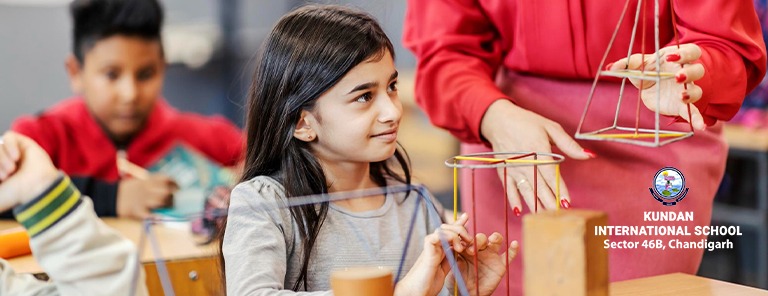Extracurricular activities, encompassing a diverse range of interests and pursuits outside the traditional classroom setting, play a pivotal role in fostering holistic development among students. While academic achievements are undeniably crucial, the multifaceted benefits of participating in extracurricular activities contribute significantly to a student’s overall growth and well-roundedness.
In this blog, Kundan International School one of the best Schools in Chandigarh will explore the diverse aspects of how extracurricular activities shape holistic development.
- Cultivating Social Skills and Teamwork
Engaging in extracurricular activities provides students with ample opportunities to interact with peers, fostering the development of crucial social skills. Whether participating in team sports, joining clubs, or taking part in group projects, students learn to collaborate, communicate effectively, and work towards common goals. These interpersonal skills are essential not only in academic settings but also in future professional and personal endeavours.
- Building Character and Leadership Qualities
Extracurricular activities often involve challenges that contribute to the development of character and leadership qualities. Taking on responsibilities in clubs, leading teams in sports, or organizing events requires students to demonstrate initiative, accountability, and resilience. These experiences instil a sense of responsibility and prepare students for leadership roles in various aspects of life.
- Enhancing Time Management and Organization Skills
Balancing academic commitments with extracurricular activities necessitates effective time management and organization. Students learn to prioritize tasks, meet deadlines, and allocate time efficiently. These skills are transferable to academic responsibilities, professional pursuits, and life in general, promoting a disciplined and well-organized approach to tasks.
- Boosting Confidence and Self-Esteem
Success and accomplishments in extracurricular activities contribute to increased confidence and self-esteem. Whether excelling in sports, the arts, or other pursuits, students gain a sense of achievement that positively influences their self-perception. This boost in confidence extends beyond the specific activity, empowering students to approach challenges with self-assurance.
- Fostering a Love for Learning Beyond the Classroom
Extracurricular activities provide avenues for students to explore interests and passions beyond the standard curriculum. Whether it’s engaging in science clubs, literary societies, or creative arts, these activities stimulate a love for learning that goes beyond textbooks. This intrinsic motivation for knowledge contributes to a lifelong pursuit of intellectual curiosity.
- Stress Relief and Emotional Well-being
Participating in enjoyable extracurricular activities serves as a valuable outlet for stress relief and emotional well-being. Hobbies, sports, and creative pursuits provide students with a healthy means of relaxation and expression. This emotional balance positively influences mental health and resilience, creating a foundation for coping with academic and life challenges.
- Encouraging Diversity and Inclusivity
Extracurricular activities often embrace diverse interests, talents, and backgrounds. Joining clubs, teams, or groups exposes students to a variety of perspectives, fostering an appreciation for diversity and inclusivity. These experiences contribute to the development of open-mindedness and empathy, qualities that are increasingly vital in a globalized world.
Conclusion
In conclusion, extracurricular activities serve as a cornerstone in the holistic development of students, providing a myriad of benefits that extend beyond academic achievements. From building social skills and leadership qualities to enhancing time management and fostering a love for learning, these activities contribute significantly to the well-rounded growth of individuals. By encouraging students to actively participate in extracurricular pursuits, educators and parents contribute to the cultivation of a diverse skill set and a resilient, well-rounded approach to life’s challenges.
